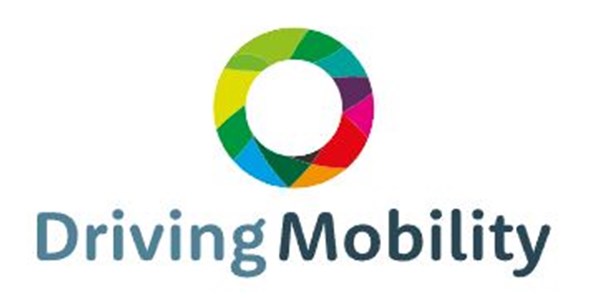Older Drivers
Dorset police work in partnership with the older driver’s forum with the aim of keeping mature motorists on the road safer for longer.
Whether that’s helping give practical informative help and support to continue driving or pointing older drivers in the right direction for an appraisal or assessment for their driving needs. The below is information from us and our partners to help and support older drivers.
There is no denying that mature drivers are amongst the safest on the road however In Great Britain in 2019, 203 drivers aged 60 and over were killed in road collisions, while 1,867 were seriously injured and 7,844 were slightly injured.
The risk of being involved in a collision increases after the age of 70, but up to that age drivers are no more likely to cause a crash than to be the victim of another road user’s mistake. However, drivers over 70, and especially over 80, are more likely to be at fault when they crash.
How can older drivers stay safe on the road?
Here are 4 simple ways to help older drivers stay driving safer for longer.
- Make sure regular eyesight checks are completed with an optician –Eyesight and Medicines | Older Drivers Forum
- Ensure a visit to the doctor to seek medical advice relating to any medicines that may affect driving - Eyesight and Medicines | Older Drivers Forum
- There are certain medical conditions which by law the DVLA must know about – find out more here Medical Conditions | Older Drivers Forum
- Undertake a voluntary appraisal of your driving, we all pick up bad habits, and it is a great way to brush up on our skills and carry on driving safely for longer.
Driving licences
Driving licences expire at 70 years of age, so when you reach 70, you need to renew your driving licence if you wish to continue driving. You then need to renew it every three years afterwards. Renew your driving licence if you're 70 or over - GOV.UK (www.gov.uk)
You must tell DVLA if you develop a condition that could affect your ability to drive safely (known as a ‘notifiable’ condition) or a disability, or a condition or disability has got worse since you got your licence. This applies to all drivers, no matter how old they are.
Retiring from driving
Retiring from driving does not mean losing your freedom and mobility, as there are many alternatives to driving. It may even make good financial sense to use your money for other ways of getting about, instead of running a car, especially if you don’t drive very much. You would get money from selling your car and save money because you don’t have to pay for insurance, MOTs, servicing, fuel, parking and repairs.
Use the calculator below to estimate how much it costs to run your car and how much you would need to spend on public transport. Enter your estimates of what you spend on your car in the monthly or yearly column, and then your estimate of what it would cost to use public transport, based on the journeys you would make. If don’t use a particular type of transport leave that blank.
Finally enter an estimate what you could get by selling your car and the calculator will estimate how much money this would provide every month, or year, for three years to use for public transport.
Cost calculator | Older Drivers
Support for family and friends
Talking about giving up driving can be an emotionally charged topic – especially when for some, it means give up independence.
But while hanging up their car keys can be a major milestone in an older person’s life – it does not signal the end of a bust and fulfilling life. When a person does stop driving it is often best to refer to this as retiring from driving,
If you are concerned about an older person driving, you can:
- Speak to the person concerned.
- Speak with the GP
- Contact Driving mobility West of England - Home - Driving and Mobility
- Report this to the police of there is a risk to safety. Reporting Traffic Concerns - Dorset Road Safe Partnership.
Useful links
Click here for the Highway code
Click here for -Driving eyesight rules - GOV.UK (www.gov.uk)
Click here for NHS eye test information
Click here for Information for drivers with medical conditions
How is your driving?
This short checklist can help you to consider whether your driving is changing. You could also ask someone who knows how you drive, such as a family member, to fill it in and compare their answers with yours.
|
Eyesight |
YES |
NO |
|
Do you find it harder to read road signs than you used to? |
|
|
|
Do you suffer from glare from oncoming headlights? |
|
|
|
Do you have trouble seeing pedestrians or pedal cyclists? |
|
|
|
Do you find it difficult to change your visual focus when looking ahead in the distance and then close-up at the instrument displays on your dashboard, and back again? |
|
|
|
Do you have more trouble than you used to in judging how far away |
|
|
|
Do you find driving in the dark more difficult than you used to? |
|
|
|
Has it been more than 2 years since your last eyesight test at an opticians? |
|
|
|
Has your optician or doctor said your eyesight is getting worse? |
|
|
|
Physical Mobility |
|
|
|
Do you find it more difficult to turn your head to see over your shoulder than you used to? |
|
|
|
Do you find it more difficult to turn the steering wheel fully than you used to? |
|
|
|
Do you find it more difficult to use the foot pedals, gears or other controls |
|
|
|
Do you find it more difficult to control your car than you used to? |
|
|
|
Do you find it more difficult to get in and out of your car than you used to? |
|
|
|
Do you suffer from aches and pains when driving? |
|
|
|
Tiredness |
|
|
|
Do you feel more tired after, or while, driving than you used to? |
|
|
|
Have you found yourself nearly nodding off when driving? |
|
|
|
Do you feel sleepy when driving during the day? |
|
|
|
Do you have trouble concentrating when driving? |
|
|
|
Do you have trouble sleeping at night? |
|
|
|
Making Decisions |
|
|
|
Do you have trouble concentrating when driving? |
|
|
|
Do you find driving on high speed roads, such as motorways and dual |
|
|
|
Do you find negotiating large, busy junctions and roundabouts difficult? |
|
|
|
Do you react more slowly in difficult, complex situations? |
|
|
|
Do you drive much more slowly than the speed limit, even when there is little traffic? |
|
|
|
Do you find changing lanes more difficult than you used to? |
|
|
|
Do you find it difficult to judge when it's safe to pull out of a junction? |
|
|
|
Do you often feel anxious or stressed when driving? |
|
|
|
Driving History |
|
|
|
Has the number of near misses you've had increased in the last year or so? |
|
|
|
Have you had a crash in the last year or so? |
|
|
|
Have you received any penalty points on your licence in the last year or so? |
|
|
|
Have you been stopped by the Police because of your driving in the last |
|
|
If you answered ‘yes’ to any of the above questions, consider what you can do to cope with these changes to make your driving safer and easier. You could.
- Book a driving assessment/appraisal. (See below)
- Change when and where you drive, for example, avoid driving at night or on certain types of roads.
- Change or adapt your vehicle.
Medical Questions
If you answered ‘yes’ to any of the medical questions, discuss this with your doctor or another medical professional. If you have a condition that could affect your ability to drive safely (known as a ‘notifiable’ condition) or a disability, or a condition or disability has got worse since you got your licence, you must tell the DVLA. This does not automatically mean that you will be told to stop driving; there may be changes you can make to help you to keep carry on driving safely
Eyesight Questions
If you answered ‘yes’ to any of the questions about eyesight, discuss this with an optician and take an eyesight test. The answer might be as simple as a new prescription for your spectacles or contact lenses, or the eye test might identify signs of an eyesight condition that needs to be addressed.
Driving History
If you answered yes to any of the questions in the Driving History section, a driver assessment or some refresher driver training, and reading the latest version of the Highway Code, would be helpful.
Useful links
Click here for the Highway code
Click here for -Driving eyesight rules - GOV.UK (www.gov.uk)
Click here for NHS eye test information
Click here for Information for drivers with medical conditions
BCP Useful links
BCP - Apply for an older person's bus pass
Dorset Council useful links
Dorset Council - Apply for an older person's bus pass
For more information or questions please email dorsetroadsafe@dorset.pnn.police.uk for the attention of the Road Casualty Reduction Officers.
Driving Mobility West of England
The driving mobility centre is to help disabled and older people keep mobile and independent and help those affected by medical conditions stay safe on the road. They have an expert team of Occupational Therapists and driving advisors that undertake comprehensive assessments of ability to drive a vehicle safely and in comfort.
Fitness to drive assessments last for approximately two hours and include a pre-drive consultation and an on- road drive in one of the centre’s dual controlled vehicles. At the end of the on- road drive, verbal recommendations will be given followed by a comprehensive report. This is recognised by the DVLA and may assist in licence re-application or where any medial investigations are being carried out.
For more information or to book visit Driving and mobility Centre or call 0117 965 9353.
Available Courses for Older Drivers
Mature Driver Review IAM
Mature drivers are amongst the safest on the road, but there is no denying that, as you get older, reactions can be less swift – perhaps eyesight might not be as sharp and memories of the highway code less clear. The IAM mature driver review is the perfect way to gain reassurance that, even though you may be a senior road user, you still have plenty of miles left in the tank. The mature driver review is aimed at people aged 65 years and over.
The driving review is in a relaxed environment, in your own car with one of the IAM experts who will assess your driving style and to watch out for any areas where your skills could so with some sharpening. The cost of the course is £65.00.
For
Reassure your family more information visit Mature Driver Review | IAM RoadSmart or call 0300 303 1134



